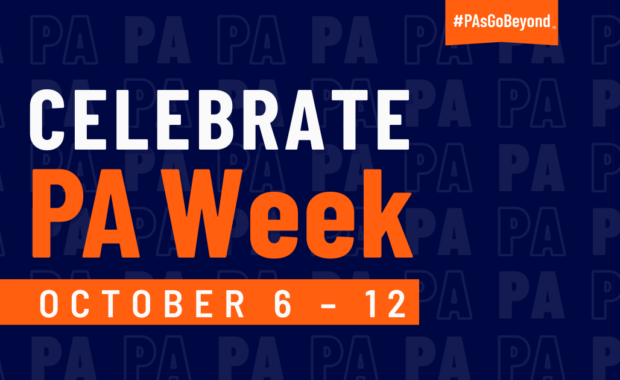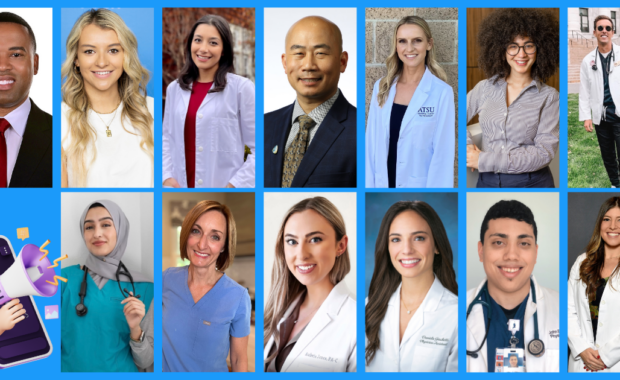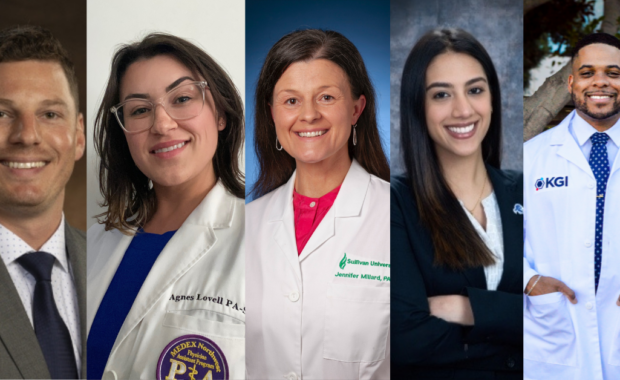Africa Calls PAs: Providing Medical Care on the Continent
Six PAs Share Their Africa Experiences
January 23, 2019
By Hillel Kuttler
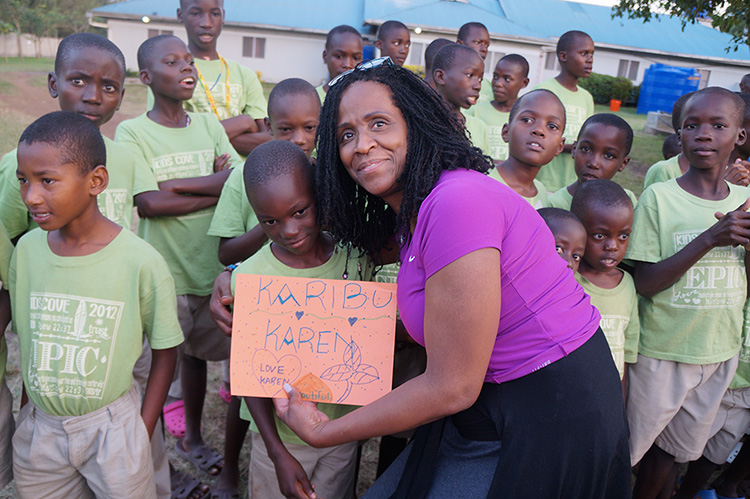
Karen Roane, PA-C, was employed in a hospital in a poor neighborhood in New York City, when she considered working in a similarly challenging location overseas. Roane wanted “to be in a place where I could use my skill set,” she said.
So, in 2013, she volunteered for nearly two weeks at a clinic in Migori, Kenya. She’s returned regularly, and in 2020 will make her fifth visit there.
That first time, Roane cried daily at the healthcare gap between the two countries. “Once I got past that, I had a sense of … being part of change in an individual’s life in different ways,” said Roane, now working in Cleveland Clinic’s general surgery department.
She is not alone among PAs serving in Africa. Like Roane, they go wanting to help improve healthcare on a continent the World Health Organization’s African Regional Health Report in 2014 said “confronts the world’s most dramatic public health crisis” and where more than 90 percent of global malaria cases occur.
“Over time, the region can address the health challenges it faces, given sufficient international support,” the report stated.
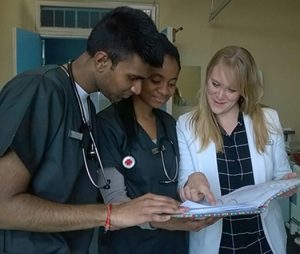
Volunteer and paid support in Africa
That support includes PAs volunteering and those being paid. It’s unknown how many PAs visit Africa, said Lyndsey Milcarek, PA-C, MPH, president of PAs for Global Health, but most head there because “it fills them with satisfaction.”
“I’d go back in a heartbeat,” said Milcarek, who taught in 2016 and 2017 at a South African medical school and now works at a family practice near Buffalo, New York. “The good outweighs the difficulties, even the diseases you might get.”
Africa first grabbed Milcarek at age 8, while watching a television program about a girl living on a wildlife reserve. Another PA, Marie Meckel, PA-C, MPH, was drawn to Africa at age 20, backpacking across the continent. She later spent four summers in Ghana and a year in South Africa. Meckel “felt a need to do something useful” there, she said, “and as a PA I had the ability to do it.”
[Lost Boy of Sudan Devoted to Helping Others as PA]
While the profession goes by different names on the continent, its advanced practice provider roots run deep. In South Africa, PA-like professionals are known as clinical associates; in much of eastern Africa, clinical officers; in Tanzania, associate medical officers.
Meckel is now helping to survey educators in Africa’s PA-like programs. The data gleaned will benefit programs worldwide, because African clinicians “work in low-resource settings” and “must creatively address healthcare needs,” said Meckel, an educator and family-practice PA in Massachusetts. Africa has “some of the oldest and most well-established PA-like programs in the world,” she explained.
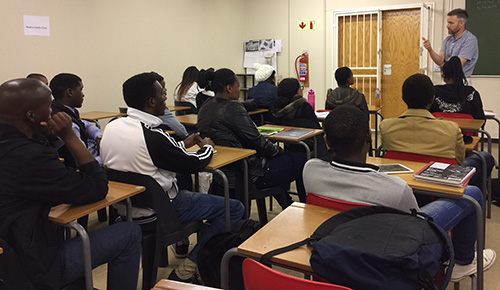
PAs serve through nonprofit organizations
Nearly all American PAs reach Africa through nonprofit organizations, particularly churches and missionary groups. Lacking licenses to practice long-term, they visit for short periods.
Derek Webber, PA-C, and Scott Smalley, PA-C, are among the few American PAs living in Africa.
Webber moved to Chogoria, Kenya, in 2016 after working more than two years in a Ugandan village. He’s now employed in outpatient care and in the emergency department of PCEA Chogoria Hospital, run by the Presbyterian Church of East Africa.
Webber said he does the same in Chogoria as “any other PA” in America: triage, ordering X-rays and CT scans, debridement, draining abscesses, cleaning wounds, even removing bugs from patients’ ears. Every evening, he leads Bible study in local churches. While Webber’s “first obligation is to work at the hospital,” he said, he doesn’t hide being a “medical missionary,” adding: “We serve everyone.”
Smalley runs the clinical associates’ program at the University of Witwatersrand in Johannesburg, South Africa. Soon after becoming a PA in 2007, he moved to Kenya and attained licensure as a clinical officer, meaning that he’s spent nearly all his PA career in Africa.
PAs can best help their African counterparts to “have confidence and competence in what they can provide” to patients, he said.
“I can help educate the patients, and of course my students, as to what we’re capable of doing … in the context of what South Africa’s medical needs are,” said Smalley, the president of the International Academy of Physician Associate Educators. (IAPAE members will meet at AAPA 2019 in May.)
Cathy Hoelzer, MPH, PA-C, has worked abroad much of her career, including in Africa. Beginning in 2004, she cared for Sudanese refugees in Chad, then moved to Sudan and what became South Sudan.
Like Webber, Hoelzer was motivated by both medical commitment and religious beliefs. In Sudan and South Sudan, she worked for Christian organizations in two primary areas: training Sudanese healthcare workers and treating patients with severe eye conditions, including trachoma and onchocerciasis, fly-borne diseases causing blindness.
Once, she bicycled six hours to reach a mountain village in South Sudan. A nine-year-old boy was brought to her. He’d gone blind the previous week.
“It broke my heart, because I had medicine with me,” she said. “That’s why I lecture on these tropical diseases. I’ve seen this blindness and the horrible disfigurement of leprosy. There’s medication, but governments don’t have it or are at war, so they rely on outside organizations.”
Hoelzer received AAPA’s 2007 Humanitarian PA of the Year Award and received a PA Foundation Global Outreach Program grant for Dajo Community Literacy Program in Southern Sudan in 2009. In 2013, she received the International Medicine Award from the Institute for International Medicine (INMED).
[Wanderlust Lessons: Advice from Travel Medicine PAs]
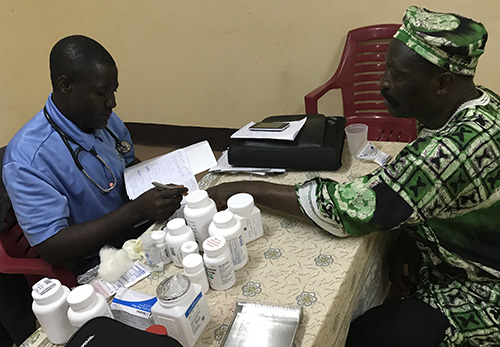
Serving patients six months at a time
Samuel Ndinjiakat, RCIS, MSPAS, MHA, MSCPM, PA-C, is another PA making a difference.
In 2011, while working in the cardiology department at Children’s Medical Center Dallas, Ndinjiakat flew to his native Cameroon after his mother took a bad fall. More than 100 villagers in Ndop, hearing about the visiting “doctor,” waited by her door.
After securing permission from a local clinic, Ndinjiakat saw patients during his 10-day stay. In 2013, he formed Faith Gardens Medical Foundation International, which annually organizes medical missions to his homeland; treating patients with pain, hypertension and sexually transmitted diseases constitutes the bulk of each mission’s work. Last July, Ndinjiakat established an urgent-care center in Ndop. He plans to expand the outpatient facility to 10-bed capacity.
Now completing his doctorate in healthcare administration, Ndinjiakat hopes to run the center and the foundation full-time and to spend six months annually in Cameroon.
“I feel a burden to give back, because I’ve been blessed. For me, it’s a passion, something I believe God has called me to do,” he said.
“I look at myself and challenge other Africans and Cameroonians in the U.S., because it’s mostly Americans going to help. We Africans are the ones who should be leading those missions. God [equipped] us to go back and help those in need.”
Read More
Working Internationally – 5 Things PAs Need to Know
PAs Working Abroad Frequently Asked Questions
Hillel Kuttler is a freelance writer and editor. He can be reached at [email protected].
Thank you for reading AAPA’s News Central
You have 2 articles left this month. Create a free account to read more stories, or become a member for more access to exclusive benefits! Already have an account? Log in.
